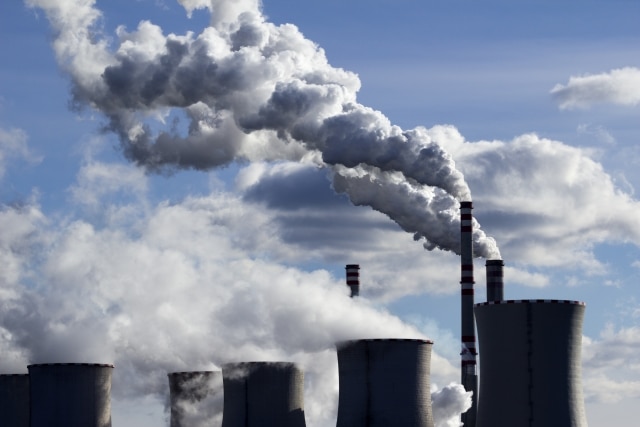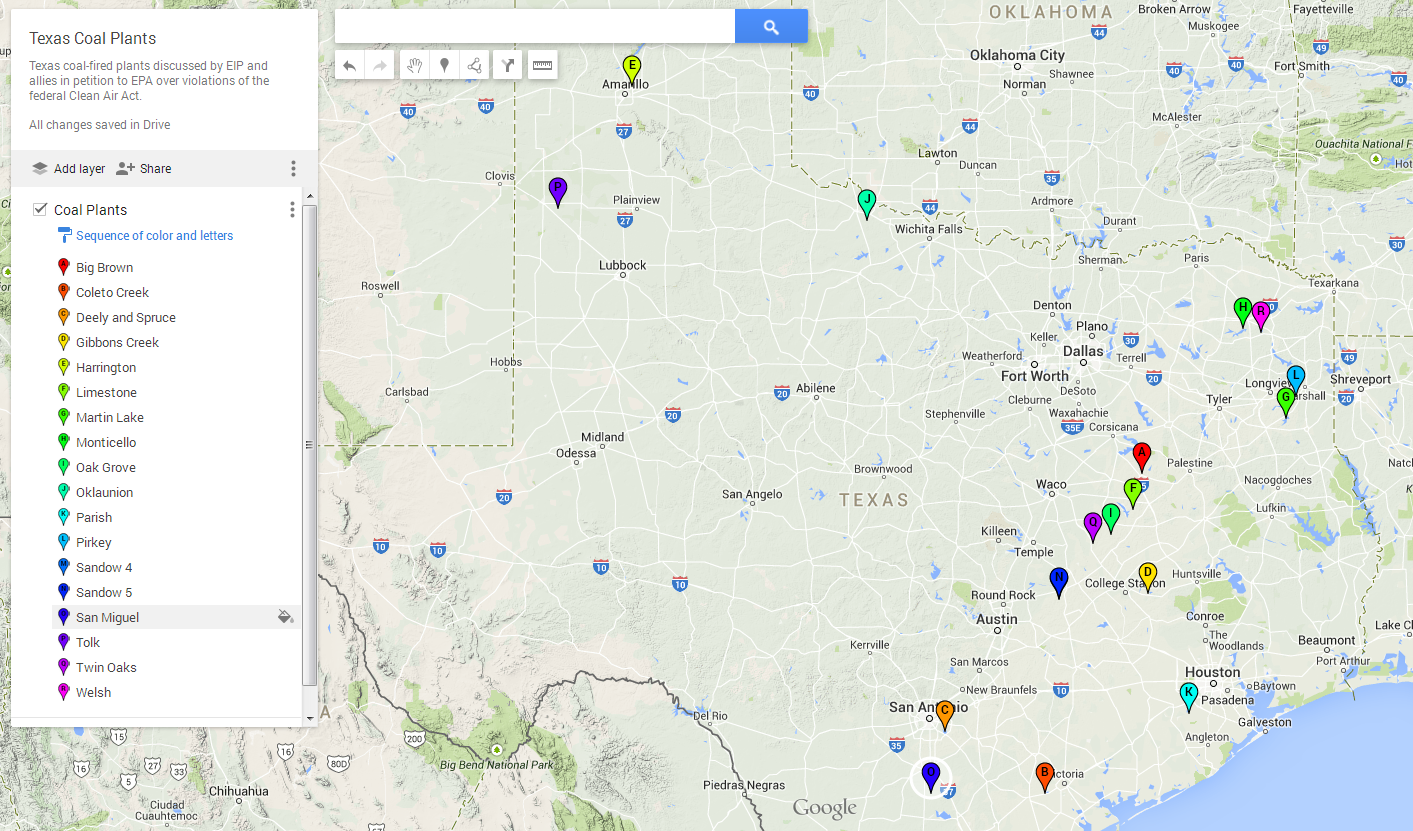NRG Energy has two coal-fired power plant units in Limestone County, Texas, about 115 miles southeast of Dallas. They’re already some of the largest, most polluting power plants in the state, and they’re about to get a whole lot dirtier.
On October 2, 2012, NRG received new permits for the two units that allow them to emit as much as 7,616 pounds of particulates per hour during startup, shutdown or maintenance operations.
That’s a nearly 3,000% increase over the previous permits, which allowed just 256 pounds of particulate per hour during startup, shutdown and maintenance. Particulate matter (or particle pollution) is very tiny bits of soot from burning coal that are so small they can bypass the lung’s built-in defenses and are known to contribute to a host of human health problems, from cancer to respiratory and heart disease.
A coalition of public interest groups announced today that they have filed a petition asking the EPA to step in and overturn the state’s decision to exempt NRG’s two coal-fired power plant units in Limestone County as well as 33 others from federal regulations that restrict the amount of particulates and other pollutants they can emit.
Texas Regulators Colluded With Industry Lobbyists
What’s more, the groups say they have proof that state regulators colluded with lobbyists to essentially let the electricity generation industry itself write the revised air pollution control permits granted to those coal-fired plants.
“Coal plants in Texas have been spewing dangerous amounts of fine soot during startup and shutdown, and the state has been turning a blind eye to the problem,” Adrian Shelley, Executive Director of Air Alliance Houston, one of the groups petitioning the EPA, said in a statement. “EPA needs to crack down on this illegal pollution for the sake of our most vulnerable residents – children and the elderly.”
The groups are challenging changes made in the permits granted to a total of 35 generating units at 19 different power plants in the state of Texas that they say will allow as much as 30 times more particulate matter per hour during startup, shutdown and maintenance — levels far in excess of federal limits and hence in violation of the Clean Air Act.
Ilan Levin, associate director of the Environmental Integrity Project, which filed the petition on behalf of the groups, told DeSmog that state rules require permits to be issued for “planned maintenance, startups, and shutdowns” of power plants.
But in granting new permits to the 19 power plants at issue, state regulators at the Texas Commission on Environmental Quality (TCEQ) consented to new, weaker standards without seeking the required EPA review and approval and without holding public hearings required under federal law.
Those 19 plants are already responsible for 30% of particulate pollution from large industrial sources in Texas, including more than 30% of nitrogen oxides and nearly 80% of sulfur dioxide, per a press release announcing the petition. Yet the TCEQ not only permitted them to increase the amount of particulate pollution they’re dumping into the atmosphere, it appears to have let the industry itself write the new language inserted into the revised air pollution control permits.
The Environmental Integrity Project viewed emails and correspondence obtained through a Public Information Act request and says it discovered that from 2011 through 2013, the TCEQ worked with the Association of Electric Companies of Texas, an electric power industry trade group, to eliminate federal limits on particulates.
On October 25, 2010, and other dates, the Association of Electric Companies of Texas sent TCEQ proposed language for the revised permits that created exemptions from the federal limits during the startup, shutdown and maintenance of power plants. State regulators then incorporated the industry’s language – verbatim – into the final text of the permits. In the copied text, the state allows utilities to design their own emission limits, define “startup,” “shutdown,” and “maintenance” virtually any way they want, and switch monitoring options in a way that makes it impossible to determine compliance. The combined effect of these changes was to make the state’s new so-called “limits” for the power plants meaningless.
The EIP’s Levin told DeSmog that the revisions happened between 2010 and 2012 as part of a regulatory effort Texas started about 15 years ago, which put all Texas industries on a new permitting schedule.
The petition was necessary because the EPA doesn’t have “the staff, resources, and/or political clout to take on Texas and the state’s powerful utility industry,” according to Levin, who says it’s possible the EPA never looked closely at the permits in the first place.
Presumably, the EPA will take a closer look now that there is a formal petition asking the agency to intervene. However, Levin says it could take a year or more for the agency to respond.
Image Credit: Kodda / Shutterstock.com
Subscribe to our newsletter
Stay up to date with DeSmog news and alerts








